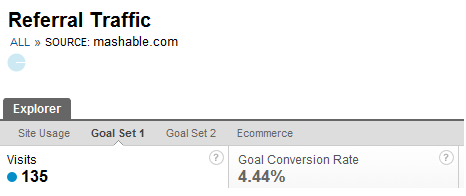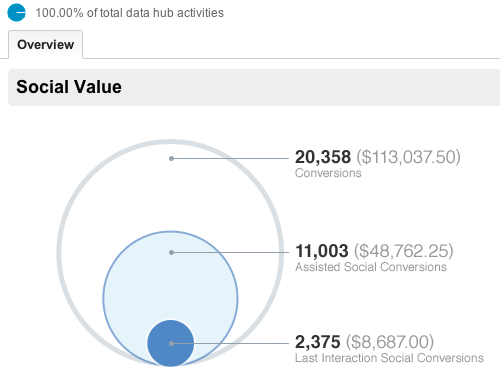I met Adam Singer a few years ago, while he was working with Lee Odden over at TopRank Marketing. I had been reading Adam’s blog, The Future Buzz, for a few months before I realized he was right here in my backyard. He recently jettisoned Minneapolis for the coast and San Francisco. These days, he’s big-timing it at Google (jealous, party of one). But, over the last few years, as I’ve gotten to know Adam a bit better, he’s always struck me as a different kind of PR pro (although I know that’s not how he would classify himself). He knows the PR basics, but he’s also layered over a sophisticated digital overlay that makes him imminently marketable (um, Google called HIM). In any case, when I think about the future of our industry, I think of Adam. Let’s hear more about why.
You’ve had a heck of a career so far for someone who graduated in 2005. You’ve held digital leadership positions with multiple agencies and now you’re in marketing for Google Analytics. To what do you attribute this outstanding success? And how have you climbed the ladder, so to speak, so quickly?
Thanks Arik – while nice of you to say, I’m not sure I’ve had a “heck of a career” as compared with several of my friends who have created amazing start-ups changing the world. But I’ve especially enjoyed enabling the success of others, and that’s why I’ve taken this path: to help entrepreneurs / brands. I’ve been having a lot of fun and very fulfilled in this space so why stop? To answer your question, I am likely where I am now (at Google, my favorite technology company) specifically because I never tried to “climb the ladder.” I think that notion is dated. I’ve made it a point to never play politics and always speak my mind without fear. Perhaps I’ve been lucky to always work at organizations who embraced a policy of meritocracy in the workplace and so I’ve never felt restricted to share ideas. I think this combined with a drive to experiment is all it took. I’ve also embraced the Jack Bauer philosophy in the past and broken what I like to call “perceived rules.” I think anything you can do to break rules and cause change in an organization is a good thing.
For a while now I’ve referred to you as the “PR pro of tomorrow.” I say that because you have that blend of traditional skills (writing, project management, media skills) and more modern media skills (content creation/curation, SEO and analytics). Can you talk about how you built those new media skills and what you’d recommend to others looking to do the same?
The answer is both simple and complex: go through the process yourself. Build your own web community, site, blog or brand “just for fun.” It doesn’t have to be about marketing or technology. It can be about anything. But you kind of have to do this if you really want to become proficient at digital marketing because we don’t live in a 1-thing world anymore. For example, you can’t just be a good writer in a vacuum. You also have to understand analytics, the motivations behind why people share, how to optimize content for conversions and how that content rolls to a larger strategy if you really want to be effective (and there’s a lot in between). Cutting your teeth on clients or even client-side is probably not going to cut it. Even getting certified or education may not be enough. Start now on your own project (for fun or profit) and you’ll be positioned ahead of most of your peers. But that’s not going to last forever, as the new generation coming up is already net, mobile and social-native. Get caught up today if you think you’re behind!
You recently left the agency world to take on a product marketing position with Google. To me, you seem like the perfect agency guy—and clearly you enjoyed it, spending the fist six years of your career on that side. Why the move to Google? Or, is it just as obvious as “if Google calls, you go?”
Besides having been a personal fan and power-user of many of Google products (including Analytics) the main reason I moved to client-side is simple: I’ve never done it. I’ve always played the role of consultant. And while with several agencies we certainly served as an extension of an in-house marketing team, my time was still split between multiple companies at once. I’ve always had it in the back of my mind that I wanted to focus on just one brand so when the opportunity came along I didn’t pass it up. Plus, I’m a big believer in lifelong learning and that philosophy fits perfectly with what Google offers employees. Not to mention getting to work with some of the smartest people on the planet on big, exciting projects.
I’ve been a big fan of your blog for a long time. But, truth be told, you’ve been blogging much longer than I’ve been reading. How have you sustained your blog for so long—and so effectively? And, what tips would you have for others who might be struggling to keep a blog up?
Write what you’re passionate about and it’s never really a struggle to keep up. More like a joy. If you’re struggling with where to find time, I’ve written some tips on that. But don’t feel pressure to keep it up with consistency if you’re just doing so for personal reasons. Write because you love it and when inspiration strikes, that makes for a far better blog. If you choose a topic you like, inspiration should strike frequently. If not, you haven’t chosen the right topic or you’re not really *that* inspired about what you do.
You’re a few months into the Google job now (started in Feb.). What’s surprised you so far? And, what are you most excited about in the months ahead?
More delighted than surprised is how intelligent, motivated and overall nice Googlers are: both externally and internally. I knew that going in based on interviews, but it’s amazing to be in a workplace where everyone is the best of the best at what they do. What I’m most excited about now is even though I’ve left a position of leadership with a world-class agency, I’m working with a team that’s focused on providing (in my opinion) the best analytics product in the world. I’m excited about the scale here, and that I get to help everyone become more data-driven in their decision making: from large brands and entrepreneurs to non-profits and start-ups. Analytics is a future core-competency for everyone in media, marketing and PR and it’s amazing to be with a team leading that charge.
Since your focus is now on Google Analytics, what are some things you think every PR counselor should know about how to use Google Analytics to help a client track results/KPIs?
This is a great question and one I think often missed. Your PR team should no longer be operating in the dark: they should be equally as data-driven as any of your other marketing groups. There are any number of metrics PR teams can track (and what they do track will depend on objective and what type of brand they are working on). PR teams need to establish a measurement process that includes reporting the right metrics to stakeholders. An agency at the edge should also deftly be able to practice marketing attribution to show results of programs and forecast results into the future. But for those new to analytics, here are 2 tips that make sense for a wide variety of brands: 1. Don’t just track “placements” — track sources that send traffic — and conversions This is simple to report and use to make decisions. You can do this right now. Just log into Google Analytics or your favorite web analytics tool and access referring sources. Let’s have a look with a sample site – I’ve circled the media sending the site traffic:
If more media placements that send web traffic is a goal, all you need to do next is analyze what they linked to and why they linked there by slicing and dicing the data. From there, you can easily see what content you created that was successful at attracting traffic from media.
It’s easy from there to get iterative and create the next version of that piece of content.
Or, maybe a guest post you created is sending lots of good traffic. Now you know it’s worth the time to craft another one for that site. Or go back to your media database to do more research and approach other sites in the same vein. Rinse, repeat and build sustainable returns on referral traffic and endorsements.
But why stop at visits? PR people can now go deeper – why not also look at what types of media convert highly, then refine your outreach accordingly?
With goals setup, you can easily see how well organic media traffic converts based on each goal. For example, here’s how a media site is converting for a sample website:
And remember, everyone can get to conversion, even if you’re not directly selling anything on your website. If you can’t do this, it means you’re not trying hard enough.
Report outcomes / value generated from social Most PR firms have gotten into social media, but so few actually measure business outcomes from social. With our new social reports in Google Analytics, it is possible to deeply analyze the business impact of social media on your brand. And not just last-click attribution, we’re able to show how social (which is typically an upper-funnel player) impacts conversions later on.
PR professionals traditionally didn’t need to show hard ROI from social. However, the fact that we’re making this possible with Google Analytics (and other analytics providers are in their tools as well) means that those who are able to are going to be far better positioned in making a business case for increasing social spends.
I know you read a lot, as part of your job and for your blog. What blogs would you recommend to PR folks looking to get a better grasp for social and digital analytics?
If I recommend a long list and no one is going to check anything out. So I’ll just recommend one: our Analytics Advocate at Google, Justin Cutroni, keeps a great blog called Analytics Talk. His content spans the range of newbie to advanced topics: but the best part is if you have an analytics question and you reach out to him, I bet he’d blog a response eventually (he’s very open to feedback from his community).
Note: Photo courtesy of Andy Beal Photography via FlickR Creative Commons.





0 Comments